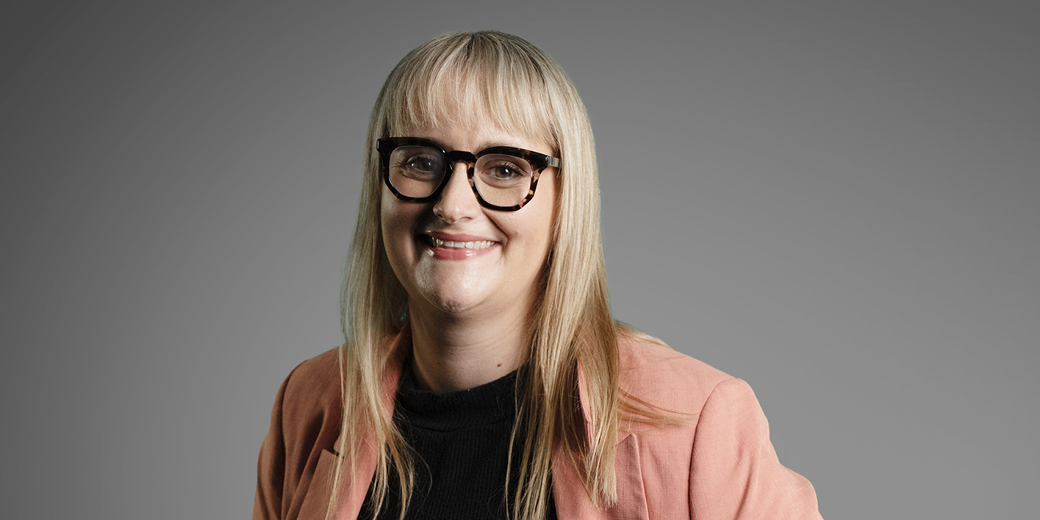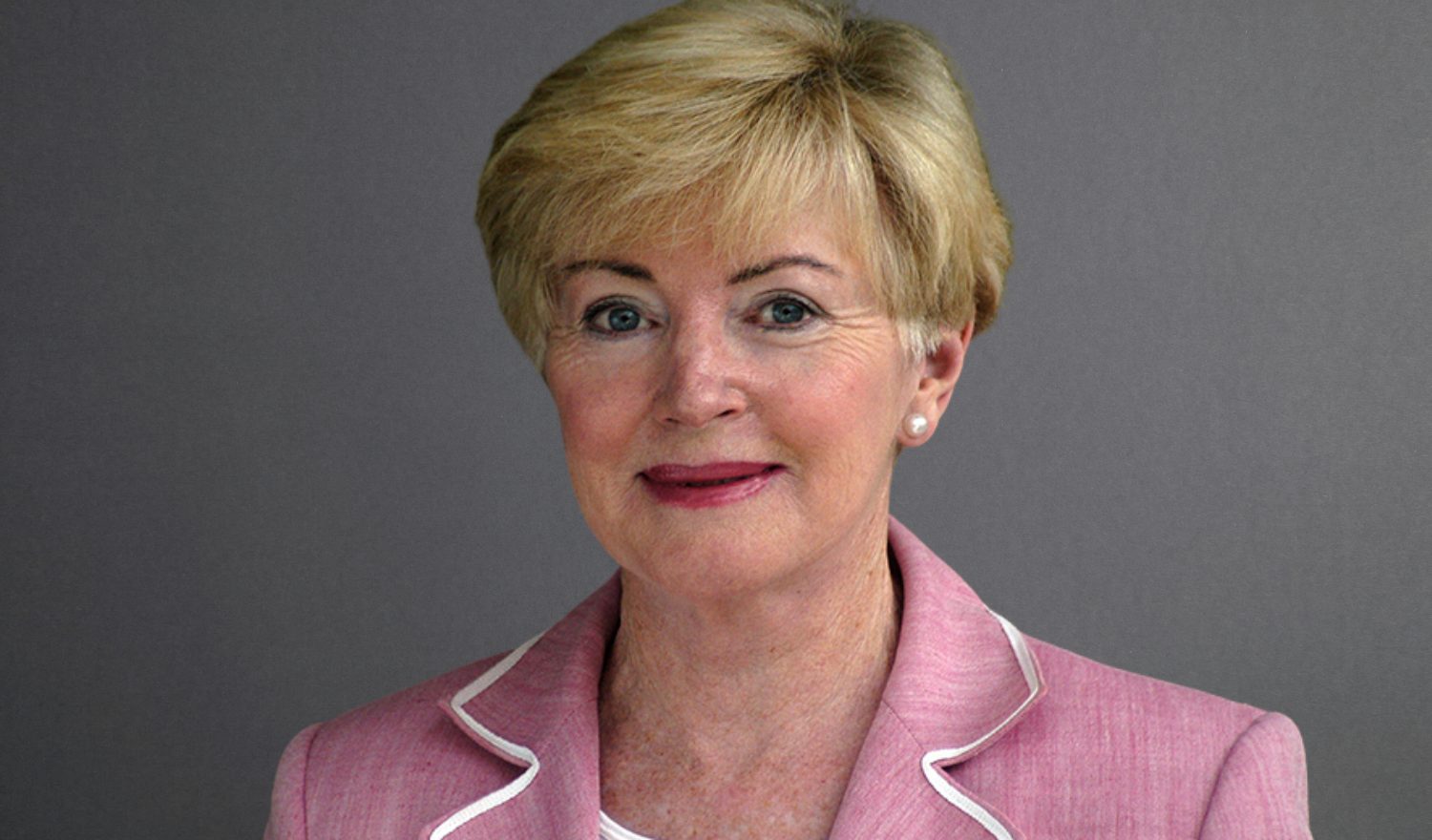Lawyer Brid Heffernan was deep in the Irish recession when she took a six week break to Australia. Lured by a life that didn’t involve a three hour round trip commute or working weekends, Brid decided to stay on. Her journey since has seen her grow through legal recruitment, litigation ops and support, and legaltech - the quintessential business of law.
Now Senior Director of Global Sales at LawVu, we caught up with Brid to trace her unlikely and impressive trajectory, and what made her solidify her experience with a Graduate Certificate in Legal Business from the College of Law.
What attracted you to law?
From the time I was a child I wanted to be a lawyer. I grew up on a farm, in a fairly rural area featuring only one local solicitor. The way I saw people look up to that solicitor, with admiration and trust, felt like something worth aspiring to. Over the years, I’d see that solicitors take the weight of peoples’ problems from them and give them a game plan.
People from non-legal families and rural areas find it incredibly difficult to break into the legal industry and I do believe that was tougher than any of the career changes I’ve had subsequently. In 2008, I qualified as a solicitor in Ireland, and I worked in a few general practice firms. Eventually, my firm moved me to manage an office dealing chiefly in Conveyancing and Property law. It’s a very important area of law, but it just wasn’t what I wanted to do.
This was also the height of the Recession in Ireland. A lot of people were losing their jobs, houses were deep in negative equity, and reception was filling up with enquiries about how to service mortgage default.
How did you find yourself in Australia?
Needing a break, I decided to go on a 6-week holiday to Australia to visit some of my friends who had emigrated during the recession. Nothing about Australia had appealed to me in advance. I wasn’t that much of a beach person, I wasn’t looking for a gap year and I felt a bit beyond backpacking. But when I arrived in Sydney, I saw the opportunities my friends had, the fact that people were getting promotions without even asking for them, and people had enviable social lives - something that just didn’t exist in Ireland mid-recession.
In Ireland, I would wake up before the sunrise, drive an hour and a half to work, come home after sunset, and work weekends in a hospital. To land in a country where lifestyle and wellbeing is balanced with achievement was inspiring.
I decided I might try and extend the trip, so I started applying for roles as a foreign qualified solicitor. Everywhere told me I’d need to be on a permanent visa. I wasn’t in a relationship with an Australian, nor was I an Australian citizen. It seemed like the only option was to get sponsored – fast!
Tell us about your journey from lawyer, to recruiter, to legal tech?
Hays convinced me to try out legal recruitment for them, which was a role that came with sponsorship. They had a very successful Legal desk in Sydney but no one in Melbourne. I’ve always loved building business so that opportunity appealed to me on all fronts. In my less-than-a-year in recruitment I learned so much about the legal industry in Australia: in private practice, government, in-house and quasi legal roles across the sectors.
Soon enough, I was enticed to move to Law In Order for a business development role in the litigation support industry. I credit my time in recruitment for making me realise how achievement-driven I am, but I credit my first role in litigation support for teaching me the nuances and power of legal tech.
Part of the fun in legal tech is walking into a firm and having them bring you up to speed on their issues - a case, investigation, or audit, etc. Then it’s your job to suggest ways to help them get a better outcome. I met the coolest, nerdiest, funniest people in that industry.
How did you move into business development?
I’ve always been uncomfortable with the term “sales” or “business development”. I know lawyers go into the legal profession because they are curious, committed people who will work hard for results, and I found those same traits were still what I was feeding in these “sales” roles.
I fired up my LinkedIn saying I was open to roles in Sydney, and joined LEAP as a Product Consultant. I worked there for a few years and was promoted to manage the Australian Sales team, a role that I thrived in and adored. In our time we set audacious targets, and met unprecedented numbers of law firms.
A few years later, an opportunity arose to join Relativity, an eDiscovery, Investigations, data processing tool. The idea of working in a huge American company with such impressive technology and such a huge client base really appealed to me.
What made you join LawVu as its 20th employee?
LawVu is a legal workspace. It helps in-house legal teams manage everything they’re working on, and improve legal operations.
I knew from my time in law firm tech that law firm technology is not fit for purpose for in-house legal teams, so the concept of LawVu seemed like a no-brainer. No-one had built an easy to use platform with good functionality.
Sam Kidd, LawVu’s CEO, sold me on the LawVu dream, and I joined 3 years ago as its 20th employee. Back then, my role covered Sales, Marketing, getting on live chat to answer questions, plus configuration and implementation planning with new clients. Fast forward to today, LawVu employs over 200 people globally. We have a whole team of Marketing folks based in two continents and a full Sales team spread across three continents!
My experience isn’t entirely unique. People often ask me how they can find a rocketship or a unicorn; I wish I had a checklist but my best advice is only ever take a role in a business that you know you will be proud of and passionate about.
I always tell people in new jobs to join slowly, leave quickly if things start to feel off.
Given your unusual career trajectory, what appealed to you about the College of Law’s Legal Business program?
I spent years looking for a Masters course that would be relevant to what I do. I am neck deep in the legal industry-in a few countries, and I want my career to stay in legal operations/legal tech. I felt a lot of the MBA courses taught electives with content that is so far from what I will ever need to know that I would disengage and resent the course. Especially when the pandemic started and courses moved to being fully remote, I knew I would not be disciplined enough to force myself to do a geometry elective, and I had no interest in paying for electives just for the sake of it.
I started doing courses that the College offered as part of the Master of Legal Business, and qualified for the Grad Cert. The flexibility that the College courses offer is important when you work like I, and my colleagues, do.
In terms of the content, I found that the College courses taught me things that for years I had been googling or assuming. For someone to coach me for example, Lean methodology, or what a platform or structured data involves, was so practical. Everyday, I use this education in my work.
What advice would you have for lawyers interested in branching into BD, or a career beyond law?
Lawyers tend to be so risk-averse. A very small portion of the people who speak to me about alternative careers in law or running their practice in a new law way actually follow through. My advice is that perfection is the enemy of progress. If you think a career in non-traditional legal work would suit you, do your research, ask recruiters for advice (they’re great people!) and try it.
Personally, I have no regrets about any of the moves I made, even the ones that hurt at the time. I believe I’m happier, have had more opportunities, have more friends and have earned more than I would have if I stayed in traditional legal practice.
You also don’t need to go full legal tech, you can dip your toe in. For example, try introducing some form of innovation in your business, whether it’s introducing new technology like a case management system, improving the firm’s social media, or adding a chatbot on your website. Nowadays, tech is really accessible to normal people. You do not have to be an IT person or a developer to make big improvements in legal practice. Set a target for yourself to innovate in some way.

























































![How to handle Direct Speech after Gan v Xie [2023] NSWCA 163](https://images4.cmp.optimizely.com/assets/Lawyer+Up+direct+speech+in+drafting+NSW+legislation+OCT232.jpg/Zz1hNDU4YzQyMjQzNzkxMWVmYjFlNGY2ODk3ZWMxNzE0Mw==)


































